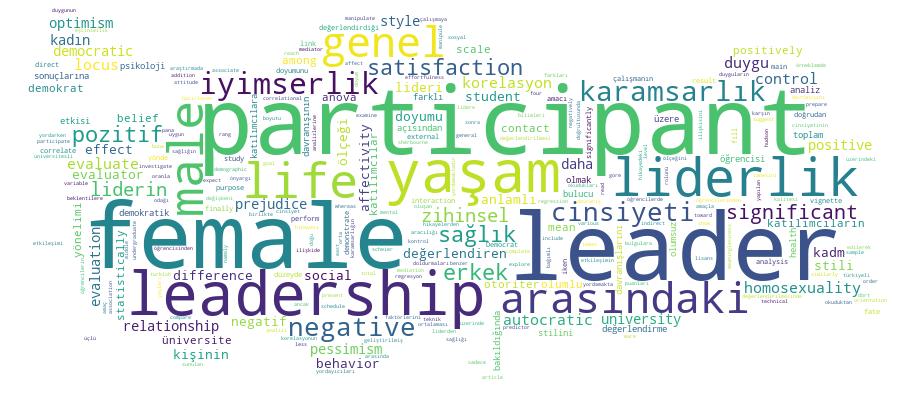Uğurlu, Ozanser
Loading...

Profile URL
Name Variants
Uğurlu, Ozanser
Job Title
Yrd. Doç. Dr.
Email Address
ozanser@cankaya.edu.tr
Main Affiliation
Psikoloji
Status
Former Staff
Website
ORCID ID
Scopus Author ID
Turkish CoHE Profile ID
Google Scholar ID
WoS Researcher ID
Sustainable Development Goals
13
CLIMATE ACTION

0
Research Products
8
DECENT WORK AND ECONOMIC GROWTH

0
Research Products
3
GOOD HEALTH AND WELL-BEING

0
Research Products
15
LIFE ON LAND

0
Research Products
17
PARTNERSHIPS FOR THE GOALS

0
Research Products
14
LIFE BELOW WATER

0
Research Products
4
QUALITY EDUCATION

0
Research Products
11
SUSTAINABLE CITIES AND COMMUNITIES

0
Research Products
6
CLEAN WATER AND SANITATION

0
Research Products
10
REDUCED INEQUALITIES

0
Research Products
9
INDUSTRY, INNOVATION AND INFRASTRUCTURE

0
Research Products
12
RESPONSIBLE CONSUMPTION AND PRODUCTION

0
Research Products
2
ZERO HUNGER

0
Research Products
1
NO POVERTY

0
Research Products
7
AFFORDABLE AND CLEAN ENERGY

0
Research Products
5
GENDER EQUALITY

1
Research Products
16
PEACE, JUSTICE AND STRONG INSTITUTIONS

0
Research Products

This researcher does not have a Scopus ID.

This researcher does not have a WoS ID.

Scholarly Output
6
Articles
6
Views / Downloads
1244/36
Supervised MSc Theses
0
Supervised PhD Theses
0
WoS Citation Count
6
Scopus Citation Count
0
WoS h-index
2
Scopus h-index
0
Patents
0
Projects
0
WoS Citations per Publication
1.00
Scopus Citations per Publication
0.00
Open Access Source
2
Supervised Theses
0
Google Analytics Visitor Traffic
| Journal | Count |
|---|---|
| Çankaya University Journal of Humanities and Social Sciences | 2 |
| Hacettepe Üniversitesi Eğitim Fakültesi Dergisi | 1 |
| Türk Psikoloji Dergisi | 1 |
Current Page: 1 / 1
Competency Cloud


